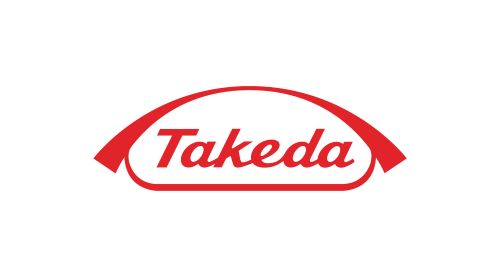Takeda’s TAK-861 Phase 2b Late-Breaking Data Presentations

Takeda (TSE: 4502/NYSE:TAK) will present today positive results from its Phase 2b trial of TAK-861 in narcolepsy type 1 (NT1) as late-breaking data presentations at SLEEP 2024, the 38th annual meeting of the American Academy of Sleep Medicine and the Sleep Research Society. TAK-861 is an investigational oral orexin receptor 2 (OX2R) agonist and, based on the results, has the potential to provide transformative efficacy in addressing the overall disease burden in people with NT1. The randomized, double-blind, placebo-controlled, multiple dose trial, TAK-861-2001 (NCT05687903), in 112 patients with NT1 demonstrated statistically significant and clinically meaningful improvements across primary and secondary endpoints, with efficacy sustained over 8 weeks of treatment.*
NT1 is a chronic, rare neurological central disorder of hypersomnolence caused by a significant loss of orexin neurons, resulting in low levels of orexin neuropeptides in the brain and cerebrospinal fluid. No currently approved treatments target the underlying pathophysiology of NT1. People with NT1 suffer from excessive daytime sleepiness (EDS), cataplexy (sudden loss of muscle tone), disrupted nighttime sleep, hypnagogic and hypnopompic hallucinations and sleep paralysis. These debilitating symptoms lead to a markedly reduced quality of life and can severely impact job performance, academic achievement and personal relationships. TAK-861 is designed to address the orexin deficiency in NT1 by selectively stimulating the orexin receptor 2.
The presentation highlights results from the Phase 2b trial including:
- The primary endpoint demonstrated statistically significant and clinically meaningful increased sleep latency on the Maintenance of Wakefulness Test (MWT) versus placebo across all doses (LS mean difference versus placebo all p ≤0.001). Improvements were sustained over 8 weeks.
- Consistent results were achieved in the key secondary endpoints including the Epworth Sleepiness Scale (ESS) and Weekly Cataplexy Rate (WCR), demonstrating significantly improved subjective measures of sleepiness and cataplexy (sudden loss of muscle tone) frequency versus placebo that were also sustained over 8 weeks.
- The majority of NT1 patients in the trial were found to be within normative ranges for MWT and ESS by the end of the 8-week treatment period as a result of these sustained improvements.
- The majority of the participants who completed the trial enrolled in the long-term extension (LTE) study with some patients reaching one year of treatment.
- The trial also included additional exploratory endpoints that showed meaningful improvements in narcolepsy symptoms and functioning according to most participants. These data will also be presented in poster presentations at SLEEP and at future scientific congresses.
- The dataset showed that TAK-861 was generally safe and well tolerated during the study, with no treatment-related serious treatment-emergent adverse events (TEAEs) or discontinuations due to TEAEs.
- No cases of hepatotoxicity or visual disturbances were reported in the Phase 2b trial or in the ongoing LTE study. The most common TEAEs were insomnia, urinary urgency and frequency, and salivary hypersecretion. Most TEAEs were mild to moderate in severity, and most started within 1-2 days of treatment and were transient.
“In this trial, TAK-861’s profile balanced efficacy and safety with the potential to establish a new standard of care for people with NT1,” said Sarah Sheikh, M.D., M.Sc., B.M., B.Ch., MRCP, Head, Neuroscience Therapeutic Area Unit and Head, Global Development at Takeda. “We are dedicated to investigating the full potential of orexin biology and advancing TAK-861 to late-stage clinical trials, with the ultimate goal of delivering a potential first-in-class treatment that can make a meaningful difference for patients.”
Based on these results, and in consultation with global health authorities, Takeda plans to initiate global Phase 3 trials of TAK-861 in NT1 in the first half of its fiscal year 2024. The Phase 2b data also supported the recent Breakthrough Therapy designation for TAK-861 for the treatment of EDS in NT1 from the U.S. Food and Drug Administration (FDA). Breakthrough Therapy designation is a process designed to expedite the development and review of a drug that is intended to treat a serious or life-threatening condition, for which preliminary clinical evidence indicates that the drug may demonstrate substantial improvement over available therapies on at least one clinically significant endpoint.
Takeda will be hosting a call to discuss these data this evening, June 3, at 7:30 p.m. CT for investors and analysts. Presentation slides and a virtual meeting link will be available here.
Additional presentations on TAK-861 will be shared during the SLEEP 2024 poster presentation session on Tuesday, June 4, from 10:00 to 11:45 a.m. CT, assessing function and health-related quality of life in individuals with NT1, as well as patient satisfaction with TAK-861 treatment.
There is no change in Takeda’s full year consolidated forecast for the fiscal year ending March 31, 2025 (FY2024), announced on May 9, 2024.
About Takeda’s Orexin Franchise
Takeda is advancing the field of orexin therapeutics with a multi-asset franchise offering tailored treatments to unlock the full potential of orexin. Orexin is a key regulator of the sleep-wake cycle and is involved in other essential functions, including respiration and metabolism. TAK-861 is the leading program in this franchise. The company is also progressing multiple orexin agonists in patient populations with normal levels of orexin neuropeptides and other indications where orexin biology is implicated. This includes TAK-360, an oral OX2R agonist being investigated for narcolepsy type 2 and idiopathic hypersomnia, which recently initiated a Phase 1 trial and received Fast Track designation from the U.S. FDA, and danavorexton (TAK-925), an intravenously administered OX2R agonist being investigated in a Phase 2 trial in patients with moderate to severe obstructive sleep apnea undergoing general anesthesia.












